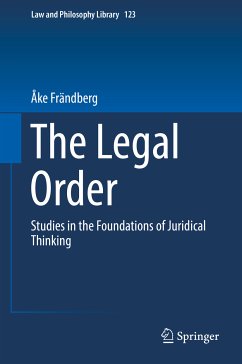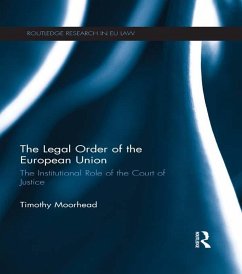
Social Order through Contracts (eBook, PDF)
A Study of the Qingshui River Manuscripts
Versandkostenfrei!
Sofort per Download lieferbar
72,95 €
inkl. MwSt.
Weitere Ausgaben:

PAYBACK Punkte
36 °P sammeln!
This book is the first Western-language monograph on the study of the Qingshui River manuscripts. By examining over 3,000 contracts and other manuscripts, this book offers constructive insights into the long-standing question of how and why a society in late imperial China could maintain a well-functioning social system with few laws but many contracts, i.e., Hobbesian "words without sword." Three interrelated questions, what contracts were, how and why they worked, are explained successively. Thus, this book presents a non-stereotypical "contract society" in southwest China, arguing that the ...
This book is the first Western-language monograph on the study of the Qingshui River manuscripts. By examining over 3,000 contracts and other manuscripts, this book offers constructive insights into the long-standing question of how and why a society in late imperial China could maintain a well-functioning social system with few laws but many contracts, i.e., Hobbesian "words without sword." Three interrelated questions, what contracts were, how and why they worked, are explained successively. Thus, this book presents a non-stereotypical "contract society" in southwest China, arguing that the social order which provides predictability and regularity for economic prosperity could be formed and maintained through contracts even under the condition of relatively weak influence of governmental and legal authorities.
This book benefits readers who are interested in law, society, and history. While presenting the socio-legal landscape of a frontier area in late imperial China for historians, this book provides a novel and empirical interpretation of the supposedly well-known contract device for legal researchers, thereby proposing materials for an integrated theoretical explanatory framework of contracts in general. By employing the innovative theory of blockchain in its key argumentation, the book offers a creative interpretation of historical and social phenomena.
Dieser Download kann aus rechtlichen Gründen nur mit Rechnungsadresse in A, B, BG, CY, CZ, D, DK, EW, E, FIN, F, GR, HR, H, IRL, I, LT, L, LR, M, NL, PL, P, R, S, SLO, SK ausgeliefert werden.












